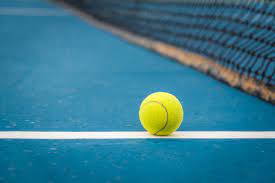Tennis, a sport renowned for its physical demands, also requires a profound level of mental acumen. This game, often played on a stage of intense pressure and high stakes, is not just a test of physical endurance and skill, but equally a challenge of mental fortitude and strategic thinking. In this blog, we delve into the often underappreciated yet crucial aspect of tennis – the mental game. As we explore these concepts, readers interested in the practical application of such mental strategies in competitive scenarios can check tennis bet site 1xbet for insights on how psychological factors influence real-time match outcomes.
In our blog, we’re going to look at how important a strong mind is in tennis. Let’s see how it helps players not just beat their opponents, but also deal with their own worries and doubts. We’ll talk about the mental challenges that both beginners and top players face and share some tips and tricks used by the best in the game.
We’ll also go over the important mental skills needed for tennis, like being able to focus, stay strong, control emotions, and think strategically. These skills are really important for all players, no matter their level, to keep their head in the game, bounce back after tough times, and stay mentally tough to play their best.
Understanding Tennis Psychology
Tennis isn’t just about being physically strong; it’s also about having a strong mind. Players need to keep their focus, handle stress, and think quickly during a game.
They need to pay attention for a long time, stay calm when stressed, and keep their spirits up through the highs and lows of a match. Tennis players also face challenges like dealing with big expectations, feeling alone (especially in singles matches), and fighting fears like the fear of losing or getting nervous about performing.
Understanding and working on the mental part of tennis is really important for playing better. If players work on their mental skills like staying focused, controlling their emotions, and thinking positively, they can improve a lot in tennis.
Mental training makes players mentally stronger. This helps them use their physical skills better, play consistently well, and have an advantage over players who may not be as mentally prepared. The best tennis players often stand out because they are mentally tough as well as physically skilled.
Key Psychology Skills for Tennis Players
In tennis, being mentally strong is just as important as being physically fit. Players need to be able to focus really well. This means paying attention to each point and each game without getting distracted. Being confident is also key. Players who believe in themselves are better at taking smart risks and getting over tough times quickly.
Controlling emotions is another big part of tennis. Players who can stay calm, especially in important matches, often do better. It’s also about handling the ups and downs that come with playing sports. Being resilient, or able to recover from losses, is a big sign of a strong-minded athlete. When players work on these mental skills and make them a regular part of how they think and play, they can really improve their game and become top players.
Focus and Concentration
Focus and concentration are very important for tennis players. In tennis, matches can last a long time and happen in different conditions, so being able to stay focused is key. This means players need to pay attention to what’s happening now and not get distracted by things like the audience, the weather, or how famous the opponent is.
Concentration in tennis means using your mind to think about strategies, make decisions, and hit the ball well. It’s not just about watching the ball and where the opponent is, but also about thinking ahead and planning your next moves. Players can improve their focus and concentration by doing things like mindfulness, setting up routines, and practicing visualization, where they picture themselves playing well in their minds.
These techniques help players get into a state known as ‘the zone’. In this state, they react almost without thinking, and they are very aware of everything happening in the game. Being good at focusing and concentrating helps players play their best, especially when there’s a lot of pressure in competitive tennis.
Confidence and Self-Belief
Confidence and believing in yourself are really important for any tennis player, and they can make a big difference in how well they play. It’s not just about how good your skills are or how fit you are; it’s also about feeling sure about what you can do. Players who are confident go into games thinking positively. They see hard moments as chances to do well, not just problems.
These players trust their training and their ability to play, which helps them make quick decisions and hit the ball better. But confidence can change; it can go up or down depending on how you’re doing, what others say, and what you think about yourself. So, to keep confidence up, players need to work on their mindset all the time.
They tell themselves good things, set goals they can reach to keep getting better, and learn from mistakes without feeling bad about themselves. When players really believe they can do well, they’re more likely to work hard and stay focused on their goals. This can lead to doing well, which makes them even more confident.
Emotional Control
Emotional control is a critical aspect of tennis psychology, pivotal in determining a player’s success on the court. In the high-stress, fast-paced environment of a tennis match, players often face a rollercoaster of emotions ranging from excitement and elation to frustration and disappointment. Mastering emotional control involves the ability to maintain composure, even in the face of errors or unexpected challenges posed by an opponent.
It’s not about suppressing emotions, but rather understanding and managing them effectively. This skill allows players to stay focused, make strategic decisions under pressure, and prevent negative emotions from impacting their performance.
Techniques such as deep breathing, positive self-talk, and mindfulness are often employed to aid in regulating emotions. By mastering emotional control, players can maintain a level-headed approach, ensuring that their emotions serve as a source of strength rather than a hindrance.
The Role of Motivation and Goal Setting
In the realm of tennis psychology, the role of motivation and goal setting stands as a cornerstone for player development and performance. Understanding the nuances of intrinsic and extrinsic motivation is vital. Intrinsic motivation, driven by an internal desire for self-improvement and passion for the game, fuels a player’s long-term engagement and satisfaction.
Conversely, extrinsic motivation, spurred by external rewards such as trophies or rankings, can provide immediate but often short-lived incentives. The art of setting effective and achievable goals lies at the heart of sustaining motivation. These goals, both short-term and long-term, need to be:
- realistic,
- measurable,
- and aligned with the player’s abilities and aspirations, providing a clear roadmap for progress.
Moreover, maintaining motivation during training and competitions is a dynamic process. It involves adapting to challenges, celebrating small victories, and learning from setbacks. Players who master the interplay of motivation and goal setting find themselves not only excelling in skill but also enjoying a more fulfilling athletic journey. This balance is crucial for both the mental and physical aspects of tennis, making it a fundamental topic in tennis psychology.
Conclusion
In simple terms, the combination of being motivated and setting goals is really important in tennis. It helps players grow and play their best. Understanding what drives a player, both from inside (like love for the game) and outside (like winning trophies), is key. Setting good goals that can be reached shows players the way to success and makes them feel good about their game.
Being able to keep up this motivation, especially when training is hard and matches are tough, is what makes a player stand out. Tennis is not just about hitting the ball with a racket; it’s also about being mentally strong, thinking smartly, and controlling your feelings. This all comes together when players are motivated and have clear goals.
For everyone involved in tennis, knowing about these mental parts can make players better and the game more enjoyable. In the end, being mentally strong in tennis is as important as being physically strong. Players need to take care of their minds just like they take care of their physical and Tennis Psychology skills.
Are you passionate about sharing your insights and expertise? We invite you to write for us! Whether you’re a seasoned writer or just starting out. We’re looking for fresh perspectives on a variety of topics, from lifestyle and wellness to technology and travel.
 Lifeyet News Lifeyet News
Lifeyet News Lifeyet News





